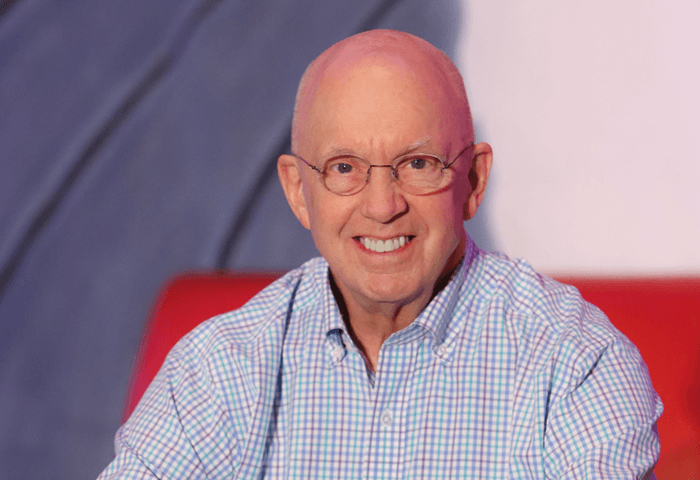
I wanted to be an engineer from a young age. My maternal grandfather, who I lived with during World War II while my father was in the Navy, was a mechanical engineer. He taught me to drive a car, to row a boat, and how to swim. He was a diesel engine designer, and when he took me to his work, I thought I was designing engines too! So I always knew I wanted to be an engineer – but I wanted to engineer something worthwhile. I could never have worked building machines that made cigarettes, or gambling machines or weapons systems. I wanted to be creative, and to do something meaningful.
My other grandfather, who died before I was born, was a famous surgeon, and his oldest son, my godfather, was a leading colorectal surgeon. My father was a college professor, an art historian and a fantastic lecturer. I’ve ended up doing all three: engineering, surgery and teaching.
I find that people often call me an entrepreneur – but I don’t like it; I don’t see myself in that way. I do mechanical, electrical and systems engineering, and I don’t do it for the money. For me, it’s about making something useful.
From a product development perspective, it’s true that I’ve been involved in quite a few startups. If you create enough threat to big companies, they tend to think, “I guess we have to buy the technology!” In that way, startups serve a very helpful purpose. But I haven’t launched an ophthalmology startup since Alcon bought a company from me in 1991. I have set up two new companies in neurosurgery because my dad died of a brain tumor at just 61. In ophthalmology, I now work exclusively with Alcon as they allow me to stay embedded with the engineering team. I’m very fortunate that Alcon treats me as a systems engineer, not just a surgeon, so I can serve as a conduit between those two disciplines.
Because of intellectual property laws, I like working with just one company – but I’m not in this field to name products after myself. It’s not an ego game and it’s not about money.
I’ve invented a lot of instrumentation that I’m very proud of, but I think ultimately your technique is king – and technique isn’t tied to my machines, or anyone else’s. So my contribution to new techniques is what I’m most proud of. The intersection of technique and technology is crucial, but technique has to lead.
I’m really focused on better visualization. Our surgical instrumentation is very good already, and so are our techniques. It’s something I’ve worked on for 44 years, as have others, but there’s still room for improvement. I’ve got a whole project – which will be an Alcon project, so I can’t share too many details – working on better visualization, higher magnification, better depth of field, and so on.
I have three wonderful daughters – one is a GYN surgeon, one is a family physician and the other is a team-building expert. We’re very close, and I also have four grandchildren who are just phenomenal.
I don’t personally believe in entertainment. I haven’t seen a movie in 30 years, and I haven’t gone on a vacation for 22. I don’t read fiction or go to concerts. I don’t really have a social life! I do fly a jet, but it’s not a hobby, it allows me to travel extensively for work despite not living near a good transport hub. I am involved in social issues; I worry about domestic violence, racism and the state of the planet, and I work with inner-city kids. I’m not a political animal – as my niche is building machines for vitreoretinal surgery and teaching – but I definitely take an interest.
Never! I’m going to do this for as long as I can, as hard as I can. I have zero interest in slowing down. People always tell me I’m passionate about my work, but I don’t think that’s the right word for it. I’m not a religious person, but I believe if you can do something to help people, you should be doing it, rather than retiring to take up fishing or golf!
Learn some science and collaborate with your colleagues – go watch other people operate, attend meetings, read the literature. Be a physician and a surgeon first, not a businessman. And remember there’s a difference between a surgeon and a physician. Be both. I pride myself on seeing a patient with a limp and asking, “Is somebody looking after your knee? Tell me what treatment you’re getting, because every time I see you the swelling seems worse.” You can’t be an expert in every area, but you can take an interest in the whole patient.
Don’t obsess over reimbursement, coding, billing and private equity. Personally, I pay no attention to the business of medicine. I have no idea what I make when I perform a vitrectomy, I just take care of my patients. These days it seems like there’s too much focus on how much you’re making, and it’s exhausting. Some people think, “Well I’ve borrowed all this money and I have to pay it back.” Yes, you did, but the taxpayer paid way more for your education than you did if you went to a public medical school! The world doesn’t owe you – you have to give back.
